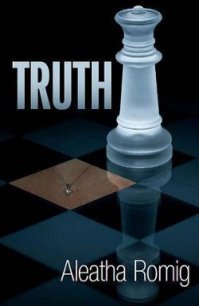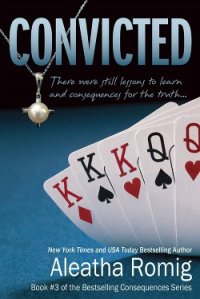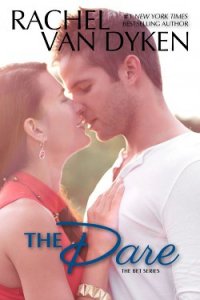The Unbecoming of Mara Dyer - Hodkin Michelle (книги бесплатно читать без .TXT) 📗
Noah turned over on to his side and said with mock seriousness, “I have never read The Joy of Crap. Sounds disgusting.” I blushed deeper. “I have, however, read The Joy of Sex,” he continued, a mischievous smile transforming his face. “Not in a while, but I think it’s one of those classics you can come back to again … and again.”
“I don’t like this game anymore,” I said as I placed the book back on its shelf.
Noah reached over to the floor next to his bed, near the acoustic guitar that was propped up against a sticker-covered case. He jangled the keys. “Well, we can go now. You can come back and grill me on the library’s contents later,” he said, his grin still in place. “You hungry?”
I was, actually, and nodded. Noah walked to a well-disguised intercom and pressed his finger on the call button.
“If you order some servant to bring food, I’m leaving.”
“I was going to make sure Albert hadn’t moved the car.”
“Oh, right. Albert the butler.”
“He’s a valet, actually.”
“You are not helping yourself.”
Noah ignored me and glanced at the clock by his bed. “We really ought to have been there by now; I want you to have time to get the full experience. But we can stop at Mireya’s on the way.”
“Another friend?”
“A restaurant. Cuban. The best.”
When we reached the car, Albert smiled as Noah opened my door for me. After the mansion was out of sight, I screwed up the courage to attack Noah with the questions that plagued me since learning of his assets. The financial sort.
“So who are you people?” I asked.
“You people?” He slipped on his sunglasses.
“Cute. Your family. Supposedly, the only people who live here are basketball players and has-been pop singers.”
“My father owns a company.”
“Okaaay,” I said. “What kind of company?”
“Biotechnology.”
“So where was Daddy Warbucks this morning?”
Noah’s face was curiously blank. “Don’t know, don’t care,” he said easily. He stared straight ahead. “We’re not … close,” Noah added.
“Clearly.” I waited for him to elaborate, but he lifted his sunglasses and hid his eyes instead. Time to change the subject. “So why doesn’t your mother have a British accent?”
“She doesn’t have an English accent because she’s American.”
“Oh my God, really?” I mocked. I saw Noah’s smile in profile. He paused before continuing.
“She’s from Massachusetts. And she is not actually my biological mother.” He looked at me sideways, gauging my reaction. I kept my face even. I didn’t know much about Noah, aside from his rumored extracurricular activities. But I realized then that I wanted to. I had no idea what to expect this morning when he picked me up, and to an extent, I still didn’t. But I no longer thought it would be some nefarious plot, and that made me curious.
“My mother died when I was five and Katie was almost four.”
The revelation knocked me out of my thoughts. And made me feel like a jackass, after picking not one but two unpleasant topics of conversation. “I’m sorry,” I said lamely.
“Thanks,” he said, staring at the bright road ahead of us. “It was a long time ago, I don’t really remember her,” he said, but his posture had stiffened. He didn’t speak for a minute, and I wondered if I was supposed to say something. But then I remembered everyone telling me how sorry they were when Rachel died, and how little I wanted to hear it. There was just nothing to say.
Noah surprised me by continuing. “Before my mother died, she and my dad and Ruth,” he tipped his head back toward the house, “were all really close. Ruth spent high school in England, so that’s how they met, and they stayed friends while at Cambridge, wreaking havoc and organizing protests.”
I raised my eyebrows.
“Ruth told me my mother was the most … enthusiastic. Chaining herself to trees and breaking into university science departments and freeing lab animals and such,” Noah said, as he placed a cigarette between his lips. “The three of them ran around doing it together—incomprehensible, if you know my father—and somehow, he convinced my mother to marry him.” The cigarette dangled from his lips as he spoke, drawing my eyes like a magnet. “While they were still in college. Some ultimate act of rebellion or something.” He lit the cigarette, opened his window, and inhaled. His face was carefully impassive beneath the dark lenses as he spoke.
“My grandparents were unenthused. They’re old money, were not fans of my mother’s to start, and thought my father was ruining his prospects. Et cetera, et cetera. But they married anyway. My stepmother moved back to the U.S. for vet school, and my parents lived la vie boheme for a while. When they had kids, my grandparents were happy. Katie and I were so close together that I think they were hoping my mother would go on maternity leave from civil disobedience.” Noah fed the ash of his cigarette to the expanse of highway behind us. “But my mother didn’t slow down at all. She just took us with her wherever she went. Until she died. She was stabbed.”
Oh my God.
“At a protest.”
Jesus.
“She made my father stay home to watch Katie that day, but I was with her. I’d just turned five a few days before, but I don’t remember it. Or much of her at all, really. My father won’t even mention her name, and he loses it if anyone else does,” Noah said, without inflection.
I was speechless. Noah’s mother died—was murdered—and he was there when it happened.
Noah breathed smoke through his nose, and it billowed around him before escaping through the open window. It was a gorgeous day, blue and cloudless. But there could have been a hurricane outside for all I cared. In an instant, Noah became different to me. I was riveted.
“Ruth went back to England when she heard about my mother. A long time ago, she told me that after my mother died, my father was useless. Couldn’t take care of us, couldn’t take care of himself. Literally a disaster—this was, of course, before he sold his soul to the shareholders. And she stayed, and they got married, even though he doesn’t deserve her, even though he’d become someone else. And here we are now, one big happy family.”
His expression was inscrutable behind his sunglasses, and I wished I could see it. Did anyone at school know about his mother—about him? And then it occurred to me that Noah didn’t know about what happened to me. I looked at my lap, fidgeting with the shredded knee of my jeans. If I told him now, it might sound like I was comparing tragedies—like I thought losing a best friend was comparable to losing a parent, which I didn’t. But if I said nothing, what would he think?
“I just—” I started. “I don’t even—”
“Thanks,” he said, cutting me off coolly. “It’s all right.”
“No, it isn’t.”
“No, it isn’t,” he said plainly. Noah pushed his sunglasses up, but his face was still guarded. “However, there are benefits to having a corporate sellout of a father.”
He was flippant, so I was too. “Like getting a car on your sixteenth birthday?”
Noah’s grin was full of mischief. “Katie has a Maserati.”
I blinked. “She does not.”
“She does. She’s not even old enough to drive it legally.”
I raised my eyebrow. “And your car? Is it your brand of teenage rebellion or something?”
The corner of Noah’s mouth curved up into a slight smile. “Sad, isn’t it?” He said it lightly, but there was something haunted about his expression. His eyebrows drew together, and I wanted so badly to reach over and smooth them apart.
“I don’t think so,” I said instead. “I think it’s brave. There’s so much stuff you could buy with that much money. Not taking it is—it’s pretty moral.”
Noah feigned horror. “Did you just call me moral?”
“I believe I did.”
“Little does she know,” he said, and turned up the volume on his iPod.
“Death Cab?” I asked. “Really?” I asked.




